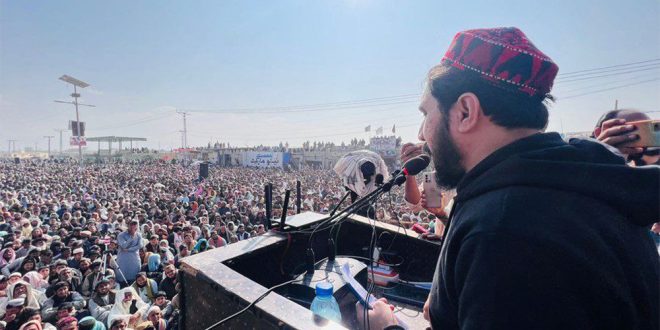Kabul – The leader of the Pashtun Tahafuz Movement (PTM) stated that 77,584 Pashtuns have been killed, 230,000 injured, and 5.7 million displaced due to bombings and targeted attacks in Pakistan.
Manzoor Pashteen said that the Pakistani military has disappeared 6,700 Pashtuns in recent years.
Late on Saturday, October 12, the PTM published the results of an investigation titled “The Harms of War and Military Operations” on the social network X. It remains unclear what methods the movement used to collect this data.
According to the statistics released by the movement, over 200 mosques in Pashtun-populated areas have been bombed in recent years, and 1,738 Pashtun leaders have been killed. The investigation also found that 7,538 Pashtuns have lost limbs due to landmine explosions.
The movement also reported that during this period, 9,272 major explosions occurred in Pashtun regions of Pakistan, and 213 Pashtun women working as polio vaccination workers were killed in the line of duty.
The movement stated that in recent years, 2,000 Pashtun religious scholars have been killed in Waziristan, Pakistan.
According to the movement, 36 Pashtun markets have been destroyed, and one million acres of their land have been seized from Quetta to Swat.
The PTM further claimed that 22,000 Pashtuns are currently being held in prison under unknown charges, and 217,000 of their national ID cards have been blocked.
Statistics published by the movement reveal that in recent years, 178 explosions have occurred in Pashtun-populated areas of North Waziristan, killing 800 Pashtuns. According to the movement’s investigation, 250 children have lost limbs, and 77 others have lost their eyesight.
The movement’s statement mentioned that 11 military operations have been conducted in tribal and Khyber Pakhtunkhwa regions. It also noted that 50 attacks have targeted Pashtun ceremonies.
The statement from the PTM added: “This investigation sheds light on numerous injustices and tragedies faced by the Pashtun people over the past four decades, serving as a strong call for justice, reparation, and accountability.”
 Afghanistan Times
Afghanistan Times




